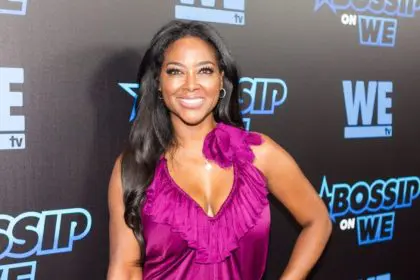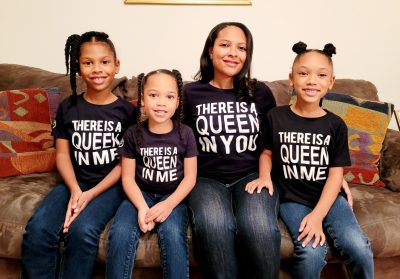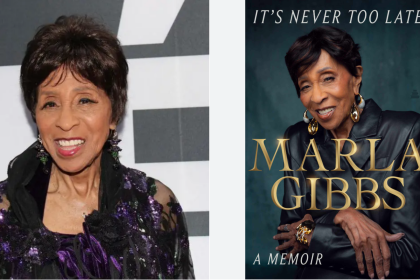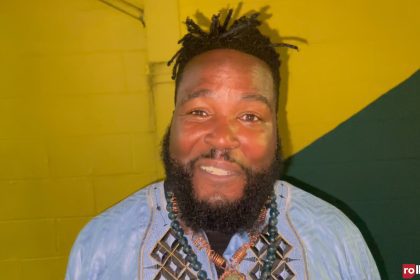Magical tale traverses the harsh realities of racism and the potential for female solidarity
Helen Collier, a prolific writer of many different genres, says writing has been in her spirit since her mother placed a pencil in her left hand and told her, “God made you a left-handed writer for a reason. It’s up to you to share with the world what that reason is.”
Ms. Anna and the Tears from the Healing Tree is Collier’s magical tale of a black woman’s journey from adolescence to adulthood with the help of an old widow spider and a tree with the power to heal wounds, physical and emotional. Ms. Anna doesn’t fool around. Her story is filled with folk wisdom, female solidarity and blunt talk between black and white women about race and what divides us. Collier has written a novel that is by turns sexy, fantastical and painfully real, with an unforgettable central character who stays true to herself to the last page.
Race and racism color everything about Ms. Anna’s story. Deeply affected by the rape and kidnap of her grandmother, hate is instilled in her by her mother who witnessed the murder of her father and grandfather by Klansmen. Living in a small city run by blacks, her mother views all whites as outsiders and white women as seductresses pursuing black men at the expense of black women who foolishly played a role in helping to free white women. Only after Anna leaves this world does she find relationships with white women who prove there can be sisterhood in spite of racial differences. Hers is a tale of a black woman’s awakening to her independence and inner strength in a world where “the importance of race is just one of many illusions created by human creatures to cloud reality.”
This book is not an easy summer read. The issues it deals with are painful and arise from our country’s history of slavery and the division between white and black women, which the sexual exploitation of black women and the fear of black men’s sexuality, planted like a poisonous weed in our culture. There is no doubt that Collier would agree with William Faulkner’s famous line: “The past is never dead. It’s not even past.”
If that is true, what hope do women have of finding the solidarity that can free us, not only from a racist society but also from our subjugation to men? Collier’s characters find their way in this morass through straight talk and confronting the realities of the past.
A friend tells Anna bluntly, “When the floodgates opened and we white women got our freedom to have both white and black men, I’ll be the first to admit we never gave a thought as to how it might negatively impact the black women who fought beside us for women’s rights. You had cleaned our homes and f—– our men. Did we know it was usually without your permission? Of course we knew! Did we care? Hell no! Because now we had our men and yours fighting for our attention…”
The blindness of white women to the troubles plaguing black women is a recurring theme in the book. It is a blindness born of self-imposed ignorance. But overall, it is the illusion of race (not racism) that blinds everyone to one degree or another, including Ms. Anna.
The Old Head, who advises Anna on her journey to adulthood, tells her “What is this word ‘race,’ daughter, but a pestiferous thought trapped in the minds of you earth creatures, allowing the emotion fear to destroy the reality of your true existence on this vanishing world.”
Toward the end of the book, the pain built up inside Anna from seeing that plantation days are not in the past comes rushing out in anger and tears. The floodgate is unleashed by the segregated café, with its “whites only” and “colored” signs, its single table and chair on a dirt floor where black workers are supposed to eat; the rundown shack where black women and babies receive unsanitary medical attention.
“Old Head, where is this journey taking me? Evil lives in their genes, d— them,” she cries, referring to whites.
Anna finally opens the floodgates and lets Julia, a southern white woman whose son is a born-again racist, have it with both barrels. Julia is shocked by what Anna tells her about her son and confronts him. Then she goes to make amends with Anna who tells her “That’s one thing about you closet racists … as long as the sh– is under the rug and you can’t smell the stink, you’re as happy as hell to walk all over it. But as soon as it smells enough to upset your stomachs, here you come running with your d— peace pipes.”
A bottle of bourbon loosens both tongues. Anna pours out the anguish she feels about the treatment of southern black women by white women who turned their backs and heaped blame on black women for what was happening to them, “when they (white women) knew d— well the hell they lived.”
Like lancing a boil, Anna and Julia take the pain to let the poison out. This becomes a basis for respect, for sharing. It’s not a cure-all, it’s a beginning.
Helen Collier has written a brave novel. It tackles the tangled heart of black-white sisterhood. If her readers have half her courage, we will see the opening of a national conversation on the issues she valiantly addresses.
Guerry Hoddersen, the reviewer, was a civil rights worker in Mississippi in 1965. The article was first published as a Radical Women column in the Freedom Socialist newspaper.















